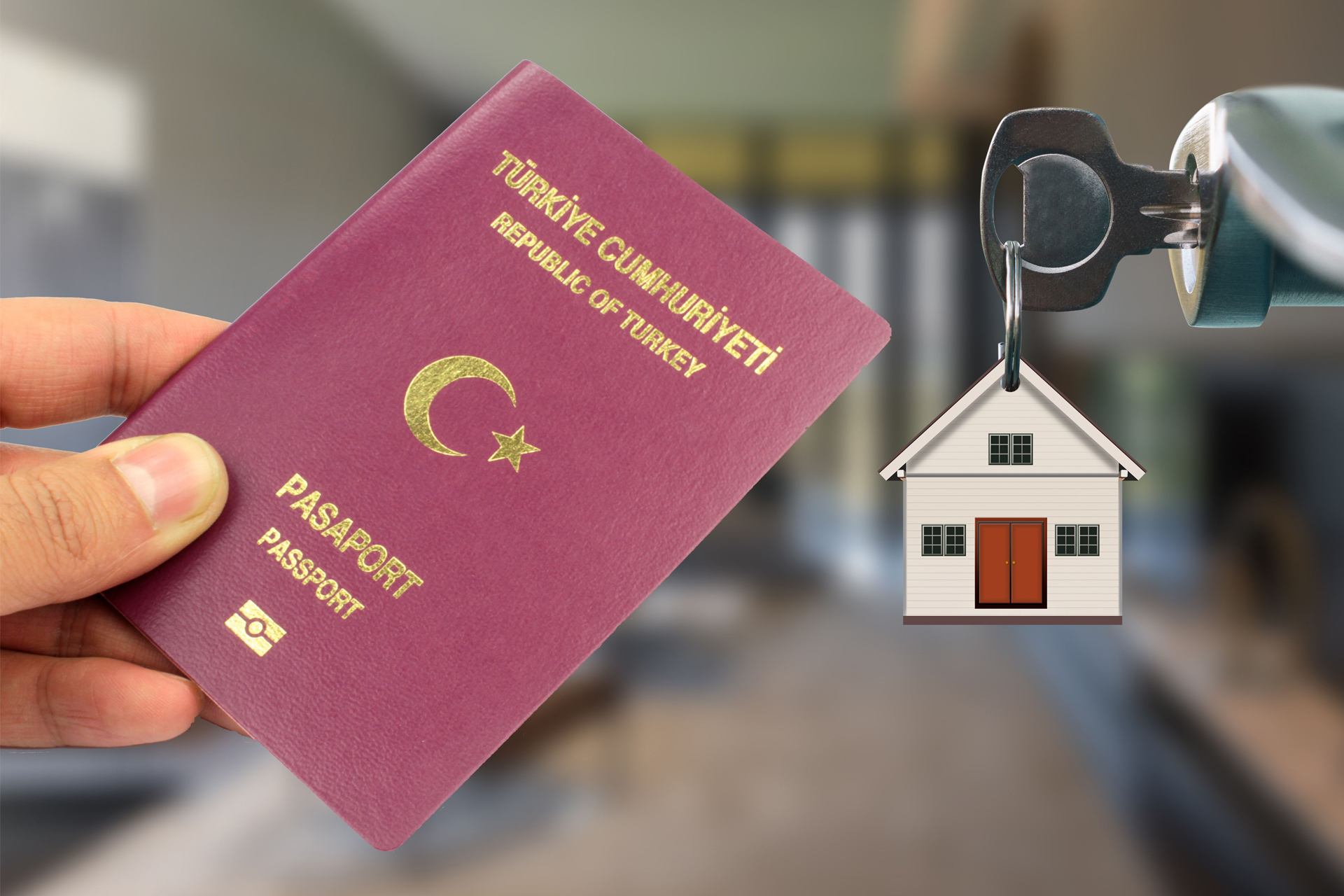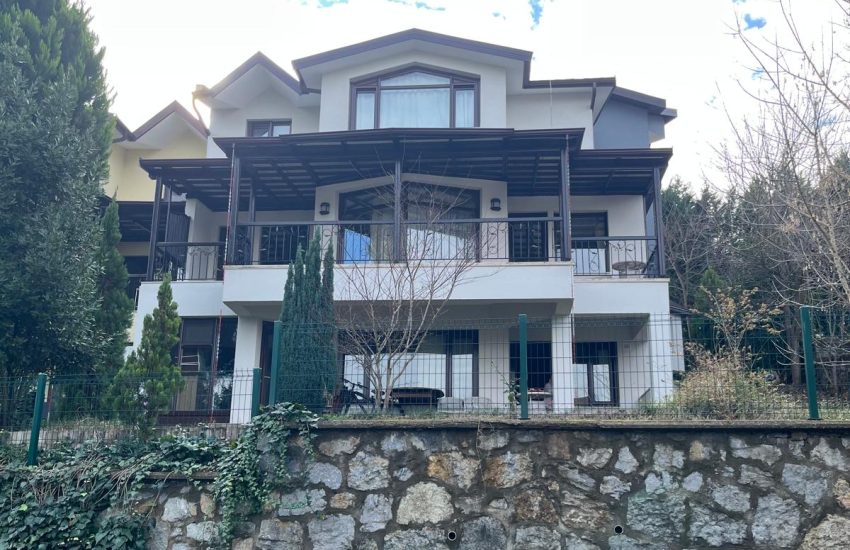Before buying a house in Turkey, here’s what you need to know

Additionally, consider the location carefully, as different regions offer varying advantages in terms of lifestyle, investment potential, and accessibility. Coastal cities like Antalya and Bodrum are popular for holiday homes, while Istanbul remains a hotspot for both residential and commercial real estate investments. Understanding the financial obligations is equally important, including property taxes, notary fees, and registration costs, as well as potential exchange rate fluctuations if you are paying in a foreign currency.
If you are buying a house with the intention of obtaining Turkish citizenship, ensure that the property meets the minimum investment requirement, which currently stands at $400,000. Moreover, foreigners should open a Turkish bank account and obtain a tax identification number to facilitate the purchasing process. It’s also advisable to consider property management options if you are not planning to reside in Turkey full-time. Finally, be cautious of scams and overpriced properties by comparing market prices and seeking professional guidance before making a decision. With the right preparation and expert assistance, buying a house in Turkey can be a rewarding investment and a smooth process.
Turkey has become a popular destination for real estate investment, attracting buyers from around the world thanks to its stunning landscapes, affordable property prices, and potential for high returns. Whether you’re looking for a vacation home on the coast, an investment property in Istanbul, or even considering Turkish citizenship through real estate, there are essential factors you must consider before making a purchase. Here’s a comprehensive guide to help you navigate the process smoothly.
1. Understand the Legal Process
Foreigners are allowed to buy property in Turkey, but it’s essential to familiarize yourself with the legal requirements. One of the most important documents in the transaction is the Tapu (Title Deed), which proves ownership. Before purchasing, verify that the property has no legal disputes, unpaid debts, or zoning issues. Hiring a qualified real estate lawyer will ensure that all legal aspects are properly handled.
It’s also important to note that certain areas, especially those close to military zones, may have restrictions on foreign ownership. Consulting with local authorities or your lawyer can help you confirm whether your chosen property is eligible for purchase.
Turkey offers a wide variety of real estate opportunities, each with unique advantages:
- Istanbul – Ideal for investors looking for high rental yields and long-term appreciation.
- Antalya & Bodrum – Perfect for holiday homes with beautiful coastlines and a warm climate.
- Ankara & Izmir – Suitable for those looking for urban living with strong infrastructure.
- Fethiye & Alanya – Great for retirees or buyers seeking affordable beachfront properties.
Your choice should depend on whether you’re buying for personal use, rental income, or long-term investment.

Before finalizing your purchase, be aware of the financial responsibilities involved:
- Property Price & Payment Terms – Prices vary based on location, size, and amenities. Developers often offer installment plans for new projects.
- Taxes & Fees – Buyers must pay a property purchase tax (typically 4% of the sale price), notary fees, and registration costs. Annual property taxes also apply.
- Exchange Rate Fluctuations – If you’re paying in a foreign currency, monitor the Turkish Lira exchange rate to get the best deal.
- Banking & Financing – Foreigners can open a Turkish bank account to facilitate transactions. Some banks also offer mortgage options to international buyers.
If you’re interested in obtaining Turkish citizenship, you can qualify by investing at least $400,000 in real estate. The property must be held for a minimum of three years, and the process involves official valuation, documentation, and application through government agencies. This route is popular among investors seeking visa-free travel benefits and economic opportunities in Turkey.

To ensure a hassle-free experience, work with:
- A Licensed Real Estate Agent – They can provide market insights, property listings, and guidance on fair pricing.
- A Lawyer – They will handle legal checks, contracts, and ensure a secure transaction.
- A Translator (if needed) – Legal documents are in Turkish, so having an official translator can help avoid misunderstandings.
As with any real estate investment, there are risks involved. Some of the most common issues include overpriced properties, misleading advertisements, and fraudulent listings. To protect yourself:
- Compare Market Prices – Check multiple sources to verify the property’s real value.
- Request Property Reports – Ensure there are no outstanding debts or legal complications.
- Avoid Paying Large Deposits Upfront – Payments should only be made after proper verification and agreement signing.

When investing in Istanbul real estate, several key factors must be considered to ensure a successful and profitable venture. First, location is paramount, as different neighborhoods offer distinct advantages depending on the investor’s goals. Central districts like Şişli, Beşiktaş, and Kadıköy are ideal for high rental yields and demand, particularly for short-term rentals, while up-and-coming areas such as Başakşehir or Esenyurt present lower entry costs with potential for significant capital appreciation.
Market trends are also critical; Istanbul’s real estate market is influenced by mega projects like the Istanbul Canal, new metro lines, and the expansion of Istanbul Airport, which can significantly increase property values in nearby areas. The purpose of the investment must be defined early, whether it’s for rental income, capital appreciation, or as a home for personal use, as this will influence property type and location selection. Legal and financial considerations are crucial, particularly verifying the property’s legal status (Tapu), understanding associated taxes and fees, and considering financing options, as foreign investors may face higher interest rates or legal hurdles.
Additionally, evaluating the rental yield and potential return on investment (ROI) is essential for determining the profitability of a property, as Istanbul offers varying yields depending on location, property type, and rental market demand. Finally, working with trusted professionals such as licensed real estate agents, lawyers, and property management services can help navigate the complex legal and administrative processes, ensuring a secure and smooth investment experience. By taking these factors into account, investors can maximize their chances of making a well-informed and profitable real estate investment in Istanbul.

When it comes to finding the best real estate agent in Istanbul, Best House Turkey stands out as a premier choice for both local and international buyers. Known for its extensive expertise and years of experience in the Istanbul property market, Best House Turkey offers clients unparalleled service and insight into the city’s dynamic real estate landscape. The agency is renowned for its deep understanding of Istanbul’s diverse neighborhoods, whether you’re seeking a luxury home in areas like Bebek and Nişantaşı or a more affordable investment property in emerging districts like Başakşehir.
What truly sets Best House Turkey apart is their personalized approach—tailoring every interaction to meet the unique needs of each client, whether they are looking for a home to settle in or an investment property with high rental yields. The team’s comprehensive service doesn’t stop at property selection; they offer expert guidance through the entire process, from legal paperwork and title deed verification to helping clients navigate the often-complex foreign ownership regulations.
With a focus on transparency, integrity, and clear communication in multiple languages, Best House Turkey ensures that each transaction is smooth and secure. Additionally, the agency provides property management services, making it easier for investors to maintain their properties and generate passive income without the hassle. Whether you’re a first-time homebuyer or a seasoned investor, Best House Turkey’s commitment to excellence makes it one of the best real estate agents in Istanbul, trusted by countless clients for both their professionalism and customer-focused service.

Buying property in Istanbul as a foreigner involves several legal requirements and steps that must be followed to ensure a smooth and lawful transaction. First, foreign buyers are allowed to purchase property in Turkey, but there are some restrictions depending on the location and property type. Foreign nationals cannot buy property in certain military zones or areas near strategic borders, and there are limits on the total percentage of land that can be owned by foreigners in any given region (typically no more than 10% of the land area in a district). Additionally, the foreign buyer must obtain a military clearance from the Turkish government, which ensures the property is not located in a restricted area.
To proceed with the purchase, the foreign buyer must have a valid passport, and if the buyer’s nationality is among the countries eligible for property ownership in Turkey, they will need to apply for a Turkish Tax Identification Number (TIN), which is required for all official transactions. The next crucial step is to open a Turkish bank account to facilitate the financial transactions. After selecting the property, a contract is drawn up in Turkish, although a translated version can be provided. Both parties must sign the contract, and a 4% title deed tax (called “Tapu Harcı”) is due, typically split between the buyer and seller.
Once the contract is signed, the buyer should apply for the Title Deed (Tapu) at the local land registry office, ensuring the property’s title is transferred under the buyer’s name. It is also advised to have a legal professional or notary to assist in reviewing all documents and to ensure all legal aspects of the transaction are handled properly. Foreign buyers should also be aware of property tax obligations, such as annual property tax, and other financial responsibilities, including utility bills and maintenance fees. By following these legal steps and working with trusted local experts, foreign buyers can confidently navigate the Istanbul property market and make a safe investment.

The average return on investment (ROI) for properties in Istanbul can vary significantly based on factors such as location, property type, market conditions, and the investor’s strategy. Generally, Istanbul offers an attractive ROI, particularly in key areas such as Şişli, Kadıköy, Beşiktaş, and the rapidly developing districts like Başakşehir and Ataşehir. In the most sought-after neighborhoods, rental yields typically range from 4% to 6% annually, which is quite favorable compared to other major global cities.
For instance, properties located near central business districts, transport hubs, or tourist attractions can generate higher rental incomes, especially through short-term rentals for tourists, leading to potentially greater returns. However, the capital appreciation of properties in Istanbul is another key element of ROI. Istanbul’s real estate market has seen consistent growth in property values over the years, driven by factors such as the city’s position as a commercial and cultural hub, major infrastructure projects (like the new Istanbul Airport and metro expansions), and a growing population.
In emerging neighborhoods, where the urban landscape is still evolving, property values can appreciate more rapidly, providing excellent long-term returns. Overall, investors can expect a blended ROI of around 6% to 8% on average in the medium term, but the potential for higher returns exists, especially for properties purchased in underdeveloped or gentrifying areas. Additionally, Istanbul’s strong demand for rental properties from both locals and expatriates helps maintain stable rental yields, making it a solid option for investors seeking long-term profitability. Ultimately, the ROI will depend on a variety of factors, and investors should carefully assess their property’s location, type, and the broader market conditions before making a purchase.
Kocaeli villa for sale
Luxury 5 Star Hotel For Sale in istanbul
Buying a house in Turkey can be a rewarding investment, but it requires careful research and preparation. By understanding the legal framework, choosing the right location, managing financial aspects wisely, and working with professionals, you can make a well-informed decision. Whether you’re looking for a dream home by the sea or a strategic investment in a growing market, Turkey offers exciting opportunities for foreign buyers.











